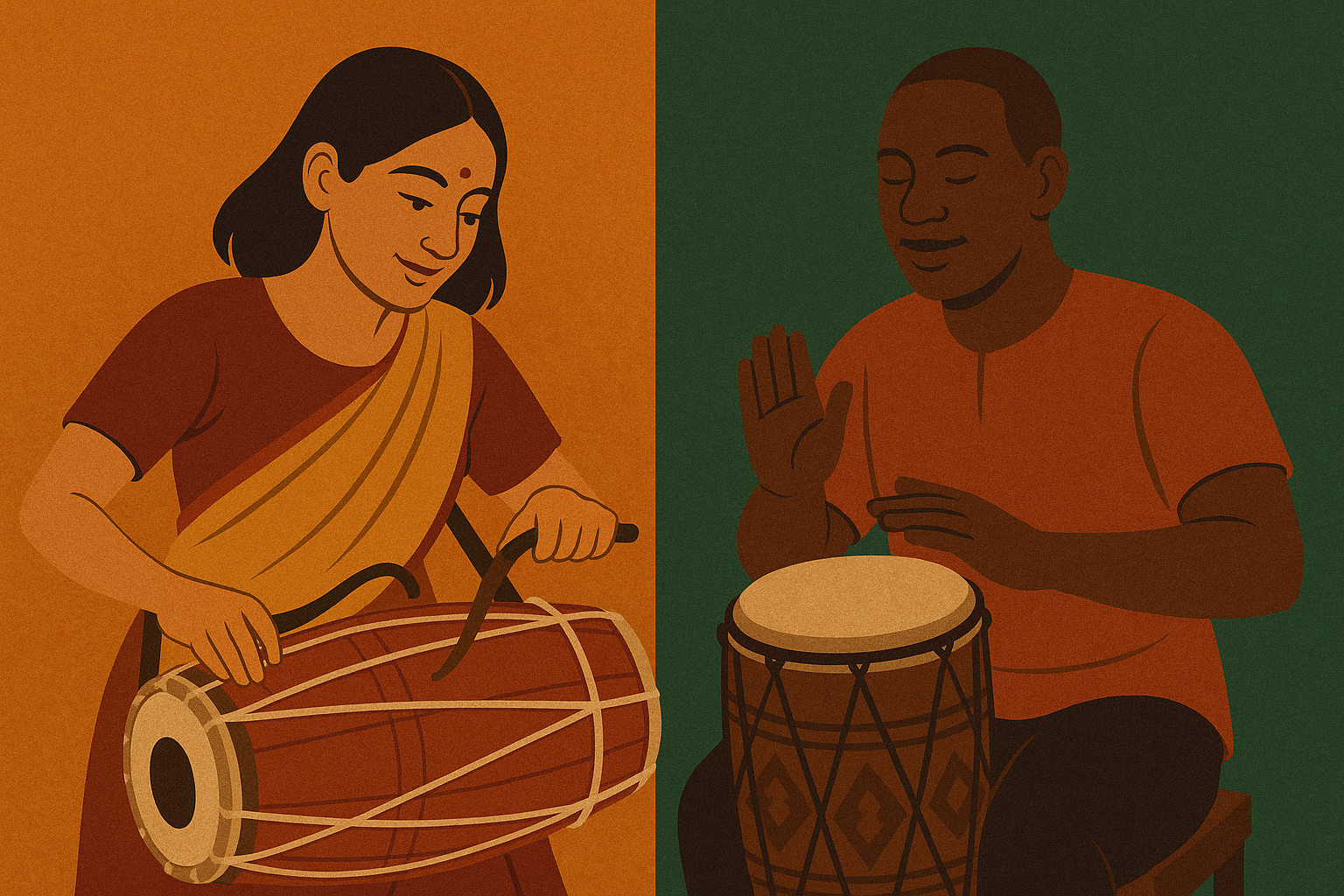Abuja and New Delhi are continents apart, bustling with contrasts that make one wonder how the capital cities of Nigeria and India, respectively, share parallels at all. Geographically, linguistically, and historically, both nations seem to be worlds apart. However, a closer look would reveal how the pulse of everyday life can feel remarkably familiar in both countries. Community, celebration, courage, and cultural continuity echo through drums and dhols, becoming a testament to how two vibrant, pluralistic nations navigate the complexities of modernity.
Community Driven Societies
In Nigerian and Indian societies, community and extended kinship occupy a central position. Life is built around people in both countries and shapes the way individuals relate to family and the wider society. Family is central to identity — expansive, intergenerational, and often playing a key role in decision-making and care giving. The sense of community influences celebrations and responsibilities. This deeply rooted sense of collectivity is visible in everything from early life rites, to wedding ceremonies and last rites, shaping how people live, celebrate, and mourn.
Celebrations and Ceremonies
In both countries, ceremonies are not after-thoughts, they are memorable events that colour life in vivid hues. From Nigeria's naming ceremonies for children to traditional Indian weddings—gatherings are marked by expression of joy through music, dance, food, and rituals. Ceremonies are more than cultural obligations — they bind communities and affirm a shared heritage. Traditions in both countries are living, breathing constructs — alive in people's clothes, songs, stories, movements, and lifestyles. Amid the world's dynamic nature, these ceremonies anchor modern lives in age-old meaning.
Pluralism as a Reality
Nigeria and India are home to a large number of ethnic groups, languages, and regional identities. This extent of pluralism presents unique challenges but ultimately becomes a source of resilience and cultural vibrance. For Nigerians and Indians, national identity isn't singular — it is layered and complex. Navigating diversity is a part of everyday life in both countries, as seen in language switches and mutual cultural awareness. This lived reality is the quiet strength of the people from both nations as they live and grow with people from diverse backgrounds within the same country.
Drums and Dhols - Two Countries, One Rhythm
Nigeria and India are two nations defined by societies that value connection, cultural continuity, and expressive living. The belief that milestones in life aren't individual moments but collective celebrations, or that solemn events aren't meant to be carried alone but observed together, makes both societies a complex yet resilient mosaic.
In a world that seeks to measure development through numbers and metrics, Nigeria and India are living examples of the power that rhythm — social, cultural, emotional — has on the growth and spirit of a nation. In the beats of the drums and dhols of Nigeria and India — literal and symbolic — there is more than music; there are the unmistakable beats of two nations with complex identities built by history and a shared zeal for life in colours.
